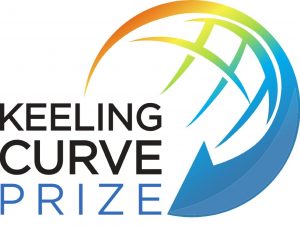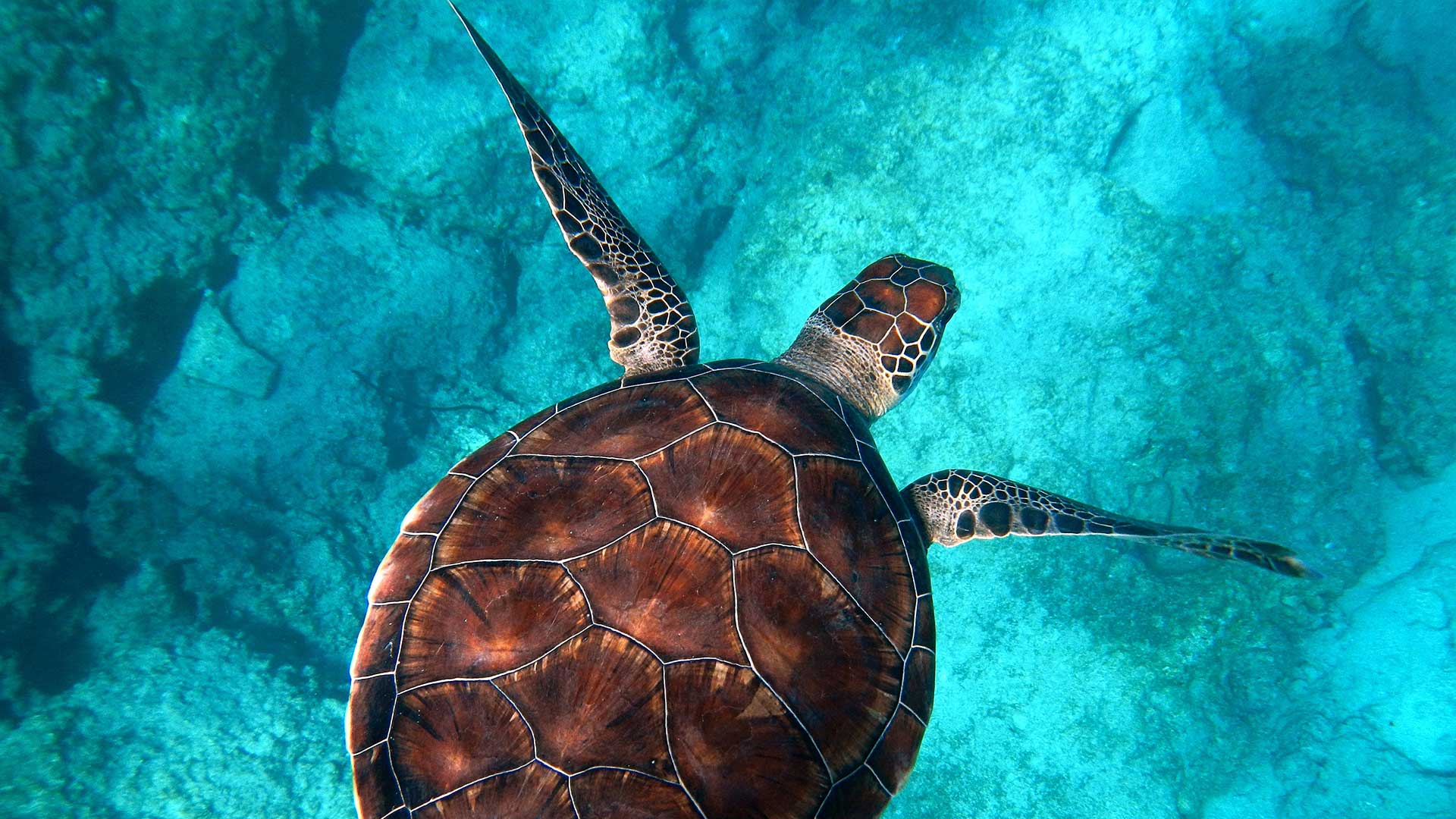Cambio Climático,Carbon Azul
 Imperial Beach, CA: WILDCOAST, an international team that conserves coastal and marine ecosystems and wildlife, was awarded the 2019 Keeling Curve Prize for its efforts to protect coastal forests - mangroves, and other coastal and marine ecosystems that help fight global warming by removing carbon dioxide from the atmosphere.
The winners of the prestigious prize were chosen from almost 150 applications from around the world. The prize recognizes projects that reduce greenhouse gas emissions or promote carbon uptake.
“We must take immediate action to address global warming, and the Keeling Curve Prize is shining a spotlight on practical solutions that can reduce heat-trapping emissions, increase carbon uptake, and slow climate change," said Brenda Ekwurzel, director of climate science for the Union of Concerned Scientists and one of this year's judges.
WILDCOAST received the prize in recognition of its innovative work to preserve mangrove forests that are among the most important carbon sequestering ecosystems in the world, in the Gulf of California and along the Pacific Coast of the Baja California Peninsula in Northwest Mexico.
WILDCOAST is currently working to conserve more than 39,000 acres of mangrove forest in northwest Mexico and will soon commence a project to restore more than 100 acres of degraded forest in Laguna San Ignacio, a gray whale birthing lagoon located within the Vizcaino Biosphere Reserve in Baja California Sur, Mexico.
“We are honored to receive the 2019 Keeling Curve Prize for our blue carbon natural climate solutions program aimed at preserving mangroves that sequester carbon, help mitigate storm surge and are critical ecosystems for wildlife and commercially valuable fish and shellfish species,” said WILDCOAST Executive Director Serge Dedina.
Blue carbon ecosystems, such as mangroves, salt marshes, and seagrass meadows, are among the most effective carbon sinks on the planet. The conservation and restoration of blue carbon ecosystems can significantly help reduce carbon emissions from land use changes and mitigate greenhouse gas pollution. The Gulf of California region is home to more than 460,000 acres of mangroves.
The blue carbon program of WILDCOAST’s project is a tri-national effort led by WILDCOAST, Mexico’s federal commission for protected areas (CONANP), and Australia’s Griffith University.
"We need a diversity of approaches so that we can reduce greenhouse gas emissions, remove them from our atmosphere, and protect our planet," said Jacquelyn Francis, founding director of the Keeling Curve Prize.
-------------------------------------------------------------------------------------------------------------------------------
WILDCOAST is an international conservation team that conserves coastal and marine ecosystems and wildlife.
For more information about WILDCOAST’s blue carbon mangrove conservation project visit wildocoast.org.
Imperial Beach, CA: WILDCOAST, an international team that conserves coastal and marine ecosystems and wildlife, was awarded the 2019 Keeling Curve Prize for its efforts to protect coastal forests - mangroves, and other coastal and marine ecosystems that help fight global warming by removing carbon dioxide from the atmosphere.
The winners of the prestigious prize were chosen from almost 150 applications from around the world. The prize recognizes projects that reduce greenhouse gas emissions or promote carbon uptake.
“We must take immediate action to address global warming, and the Keeling Curve Prize is shining a spotlight on practical solutions that can reduce heat-trapping emissions, increase carbon uptake, and slow climate change," said Brenda Ekwurzel, director of climate science for the Union of Concerned Scientists and one of this year's judges.
WILDCOAST received the prize in recognition of its innovative work to preserve mangrove forests that are among the most important carbon sequestering ecosystems in the world, in the Gulf of California and along the Pacific Coast of the Baja California Peninsula in Northwest Mexico.
WILDCOAST is currently working to conserve more than 39,000 acres of mangrove forest in northwest Mexico and will soon commence a project to restore more than 100 acres of degraded forest in Laguna San Ignacio, a gray whale birthing lagoon located within the Vizcaino Biosphere Reserve in Baja California Sur, Mexico.
“We are honored to receive the 2019 Keeling Curve Prize for our blue carbon natural climate solutions program aimed at preserving mangroves that sequester carbon, help mitigate storm surge and are critical ecosystems for wildlife and commercially valuable fish and shellfish species,” said WILDCOAST Executive Director Serge Dedina.
Blue carbon ecosystems, such as mangroves, salt marshes, and seagrass meadows, are among the most effective carbon sinks on the planet. The conservation and restoration of blue carbon ecosystems can significantly help reduce carbon emissions from land use changes and mitigate greenhouse gas pollution. The Gulf of California region is home to more than 460,000 acres of mangroves.
The blue carbon program of WILDCOAST’s project is a tri-national effort led by WILDCOAST, Mexico’s federal commission for protected areas (CONANP), and Australia’s Griffith University.
"We need a diversity of approaches so that we can reduce greenhouse gas emissions, remove them from our atmosphere, and protect our planet," said Jacquelyn Francis, founding director of the Keeling Curve Prize.
-------------------------------------------------------------------------------------------------------------------------------
WILDCOAST is an international conservation team that conserves coastal and marine ecosystems and wildlife.
For more information about WILDCOAST’s blue carbon mangrove conservation project visit wildocoast.org.
 Imperial Beach, CA: WILDCOAST, an international team that conserves coastal and marine ecosystems and wildlife, was awarded the 2019 Keeling Curve Prize for its efforts to protect coastal forests - mangroves, and other coastal and marine ecosystems that help fight global warming by removing carbon dioxide from the atmosphere.
The winners of the prestigious prize were chosen from almost 150 applications from around the world. The prize recognizes projects that reduce greenhouse gas emissions or promote carbon uptake.
“We must take immediate action to address global warming, and the Keeling Curve Prize is shining a spotlight on practical solutions that can reduce heat-trapping emissions, increase carbon uptake, and slow climate change," said Brenda Ekwurzel, director of climate science for the Union of Concerned Scientists and one of this year's judges.
WILDCOAST received the prize in recognition of its innovative work to preserve mangrove forests that are among the most important carbon sequestering ecosystems in the world, in the Gulf of California and along the Pacific Coast of the Baja California Peninsula in Northwest Mexico.
WILDCOAST is currently working to conserve more than 39,000 acres of mangrove forest in northwest Mexico and will soon commence a project to restore more than 100 acres of degraded forest in Laguna San Ignacio, a gray whale birthing lagoon located within the Vizcaino Biosphere Reserve in Baja California Sur, Mexico.
“We are honored to receive the 2019 Keeling Curve Prize for our blue carbon natural climate solutions program aimed at preserving mangroves that sequester carbon, help mitigate storm surge and are critical ecosystems for wildlife and commercially valuable fish and shellfish species,” said WILDCOAST Executive Director Serge Dedina.
Blue carbon ecosystems, such as mangroves, salt marshes, and seagrass meadows, are among the most effective carbon sinks on the planet. The conservation and restoration of blue carbon ecosystems can significantly help reduce carbon emissions from land use changes and mitigate greenhouse gas pollution. The Gulf of California region is home to more than 460,000 acres of mangroves.
The blue carbon program of WILDCOAST’s project is a tri-national effort led by WILDCOAST, Mexico’s federal commission for protected areas (CONANP), and Australia’s Griffith University.
"We need a diversity of approaches so that we can reduce greenhouse gas emissions, remove them from our atmosphere, and protect our planet," said Jacquelyn Francis, founding director of the Keeling Curve Prize.
-------------------------------------------------------------------------------------------------------------------------------
WILDCOAST is an international conservation team that conserves coastal and marine ecosystems and wildlife.
For more information about WILDCOAST’s blue carbon mangrove conservation project visit wildocoast.org.
Imperial Beach, CA: WILDCOAST, an international team that conserves coastal and marine ecosystems and wildlife, was awarded the 2019 Keeling Curve Prize for its efforts to protect coastal forests - mangroves, and other coastal and marine ecosystems that help fight global warming by removing carbon dioxide from the atmosphere.
The winners of the prestigious prize were chosen from almost 150 applications from around the world. The prize recognizes projects that reduce greenhouse gas emissions or promote carbon uptake.
“We must take immediate action to address global warming, and the Keeling Curve Prize is shining a spotlight on practical solutions that can reduce heat-trapping emissions, increase carbon uptake, and slow climate change," said Brenda Ekwurzel, director of climate science for the Union of Concerned Scientists and one of this year's judges.
WILDCOAST received the prize in recognition of its innovative work to preserve mangrove forests that are among the most important carbon sequestering ecosystems in the world, in the Gulf of California and along the Pacific Coast of the Baja California Peninsula in Northwest Mexico.
WILDCOAST is currently working to conserve more than 39,000 acres of mangrove forest in northwest Mexico and will soon commence a project to restore more than 100 acres of degraded forest in Laguna San Ignacio, a gray whale birthing lagoon located within the Vizcaino Biosphere Reserve in Baja California Sur, Mexico.
“We are honored to receive the 2019 Keeling Curve Prize for our blue carbon natural climate solutions program aimed at preserving mangroves that sequester carbon, help mitigate storm surge and are critical ecosystems for wildlife and commercially valuable fish and shellfish species,” said WILDCOAST Executive Director Serge Dedina.
Blue carbon ecosystems, such as mangroves, salt marshes, and seagrass meadows, are among the most effective carbon sinks on the planet. The conservation and restoration of blue carbon ecosystems can significantly help reduce carbon emissions from land use changes and mitigate greenhouse gas pollution. The Gulf of California region is home to more than 460,000 acres of mangroves.
The blue carbon program of WILDCOAST’s project is a tri-national effort led by WILDCOAST, Mexico’s federal commission for protected areas (CONANP), and Australia’s Griffith University.
"We need a diversity of approaches so that we can reduce greenhouse gas emissions, remove them from our atmosphere, and protect our planet," said Jacquelyn Francis, founding director of the Keeling Curve Prize.
-------------------------------------------------------------------------------------------------------------------------------
WILDCOAST is an international conservation team that conserves coastal and marine ecosystems and wildlife.
For more information about WILDCOAST’s blue carbon mangrove conservation project visit wildocoast.org. 

You must be logged in to post a comment.